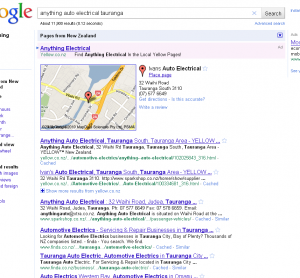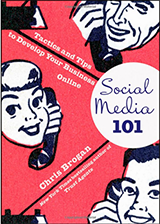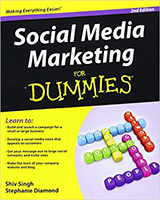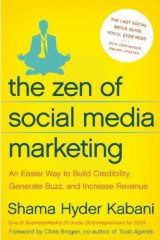Have you noticed how much publicity the growth of online advertising has been getting lately?
If you are wondering:
- “Am I missing out because I haven’t tried online advertising yet?” and
- “How can I dip my toe in the water to see if online advertising is right for my business?”, then this crash course on online advertising is what you need
“What are the major formats of online advertising?”
There are 2 main formats:
- Text based ads
- Very easy to setup
- Very easy to change
- Display ads
- Traditionally just “Banner Ads” but now includes rich media/interactive ads and video ads
- Usually expensive to get graphic design and difficult and expensive to change
- But, your best performing text-based ads can be converted to display ads very cheaply! (They look absolutely hideous, but they work really well)
“Where can we place our ads?”
In New Zealand there are 4 main places where it would be appropriate to put your ads:
1. Beside Google NZ Search results (“Google Adwords”)
- Format: Text-based ads
- In the right hand column, and sometime above search results
- Very easy to set up
- $1 per click would be average (highly competitive industry’s like finance or tourism will cost more)
- Good targeting: You can specify a geographic target and your ads are displayed when people in those cities are searching for something related to your offer
- Provides excellent data so you can just copy/paste your best performing ads to the next 3 ad networks
2. Websites that use Google Adsense
- Format: Text-based ads and display ads
- That have dedicated space on their website to earn revenue (like mine: LoveOneDaySales.co.nz)
- Very easy to set up
- Display Ads:
- Very cheap CPM (Cost-Per-Thousand Impressions) because most people don’t bother creating display ads because it’s too hard = less competition for ad space = cheaper cost of advertising
- Good reach – your ads would be popping up on random NZ websites all over the place – good for cheap brand recognition
3. Facebook
- Format: Text-based ads with a single small image
- Excellent targeting: you can specify exactly who your demographic is Eg Female 25-35 who live in the Tauranga area
- But Facebook users are not there to click on ads, they are there to have fun and share their lives. Therefore effectiveness can be very poor
- Cost-Per-Click varies greatly eg $1-$3
4. Huge NZ Websites that have their own advertising systems
- Format: display ads (interactive costs extra & video is not usually available)
- Eg TradeMe, NZHerald etc
- The CPM (Cost-Per-Thousand Impressions) is usually very high and uncompetitive to a discerning advertiser (because they put a very high value on their own audience and there is large overhead to pay for)
- No targeting at all
“Great! How do we get started?”
- Be very clear what your objective is
- If it’s new customers: What are you offering them? Why should they join? What’s in it for them? What should your landing page say?
- Set a value on that new customer
- Eg if you can expect every new customer to stick with you for 5 years and you will earn $100 from that relationship, then the value of a new customer is $100. If 50% of them will stick with you, the value is $50
- This is your maximum allowable “Cost of Acquisition”
- Set a target
- Eg “1000 new customers”
- And decide upfront how you will measure the results (eg install tracking code on the website)
- Set a budget
- Multiple your target by your Cost of Acquisition
- If the number is unacceptable, re-adjust any of the numbers accordingly
- Hand over the project to someone who knows what they are doing
“Great! Sheldon, can you help us with this?”
I’m booked up until March 2011. If you’d like to join the queue, email me your details and I’ll make a note in my diary to contact you then.
Cheers,
– Sheldon
Phone: (07) 575 8799, Email: sheldon@marketingfirst.co.nz
P.S. What I’ve left out:
- Mobile advertising
- Google Adwords offers you the ability to show your ads on mobile devices. There is huge growth in this area and definitely worth keeping an eye on and considering later
- Google Search Partners
- This is a network of search engines that use Google to serve ads, but these alternatives are not popular in New Zealand so ignore them for now
- Other Search Engines like Bing
- Perhaps there are bargains to be had with Bing’s text-based ads but their market share is very small in NZ





